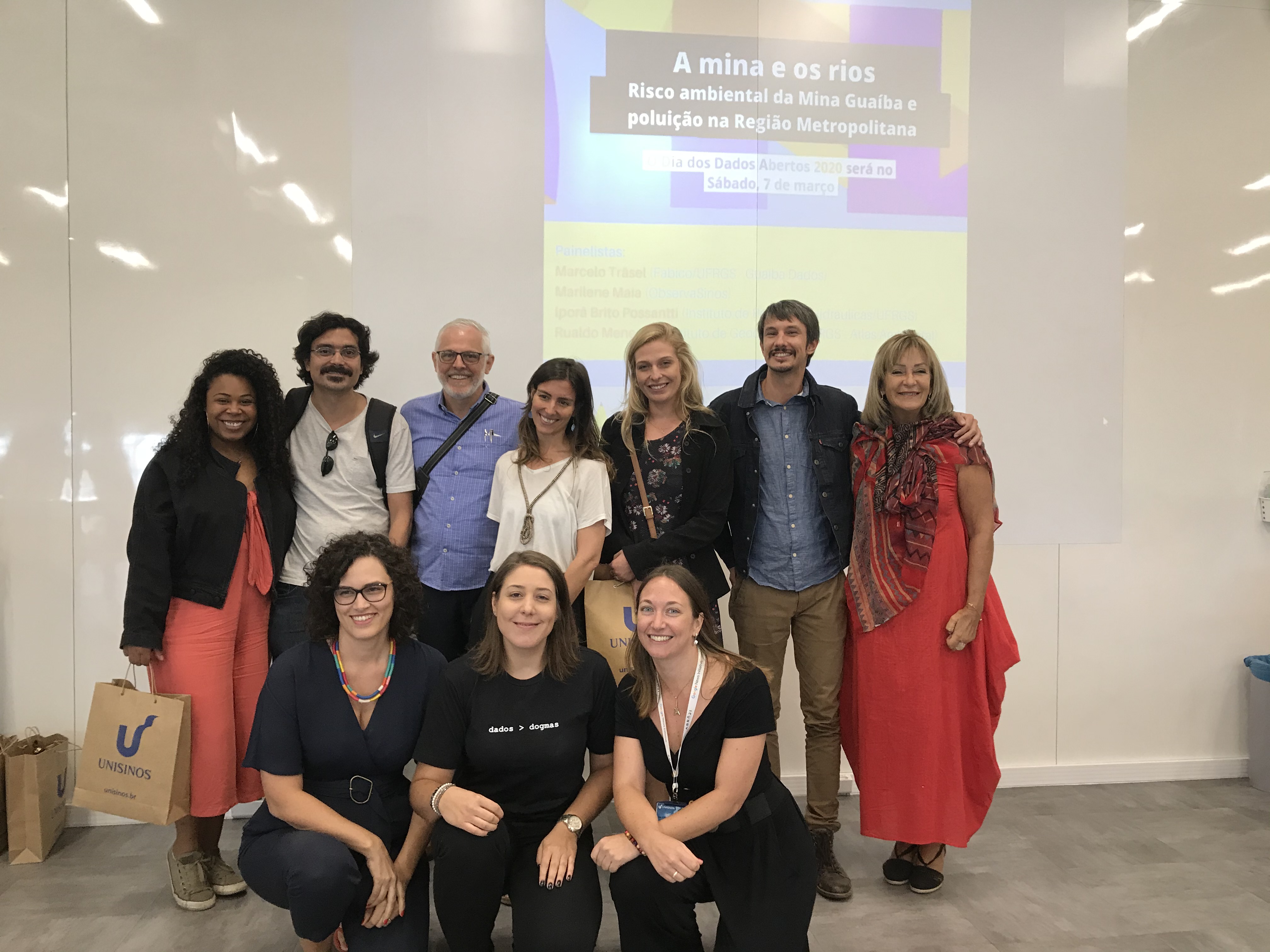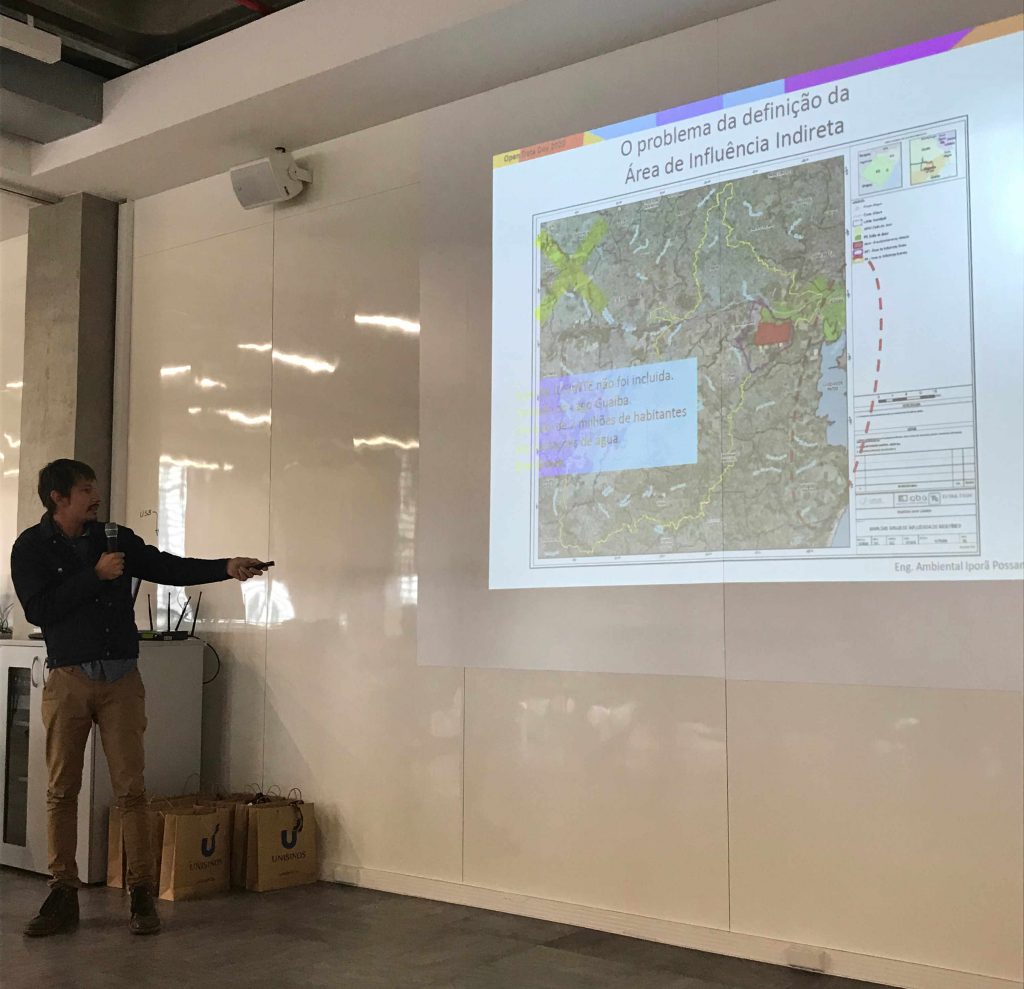On Saturday 7th March 2020, the tenth Open Data Day took place with people around the world organising over 300 events to celebrate, promote and spread the use of open data. Thanks to generous support from key funders, the Open Knowledge Foundation was able to support the running of more than 60 of these events via our mini-grants scheme.
This blogpost is a report by Marília Gehrke from Afonte Jornalismo de Dados (Afonte Data Journalism) in Brazil who received funding from Resource Watch to raise awareness about environmental politics and empower the community to use public and open data.

People who attended Open Data Day Porto Alegre learned about the ecosystem where they live. Through graphics, figures, maps, and even a new database released during the event, three panelists explained the impact of Mina Guaíba installation. The project involves a coal mine exploration, which will affect Porto Alegre, in Brazilian South, and its metropolitan region. If it occurs, about 166 tonnes of coal might be extracted in 23 years. One of the main problems is pollution: Jacuí river, and consequently Guaíba Lake, which supplies water for the city, will be at risk of contamination. Approximately 4.6 million people would be affected.
“How can society feel safe about the coal mine?”, asked Dr. Rualdo Menegat, professor of Geosciences Institute at the Federal University of Rio Grande do Sul (UFRGS) and one of the panelists. According to him, the project that aims to start coal exploration does not foresee potential risks and environmental emergencies – natural disasters, explosions, fires, storms, and inundations might happen. He also presented a periodic table of substances that are part of the chemical composition of coal. “It is chemical garbage,” he summarised.
Dr. Marilene Maia, the coordinator of the Observatory of Realities and Public Policies of Vale do Rio dos Sinos (Observasinos), believes science and data are essential for people to be aware of the mine’s risks, as well as public transparency. She said that sometimes data is available, but is not accessible because citizens do not comprehend it.

Iporã Possantti, who is an environmental engineer and also a member of the group Critical Environment (Coletivo Ambiente Crítico), organised and released a new database to empower the community and inspire people to investigate. Territorial and georeferenced information will allow the creation of maps and promote subsidies for data analysis. The main goal, he said, is to offer structured data that is already public in different places, but can disappear depending on the governors’ decision.
Open Data Day in Porto Alegre also had a workshop to stimulate the use of the Access of Information Law (a Brazilian version of the Freedom of Information Act) to obtain public data that are not publicly available unless if someone requests. LL.M. Bruno Morassutti, who is a lawyer and specialist in this topic, showed several examples of how to access Websites and protocols to ask for information. He also presented the environmental legislation in Brazil to support the arguments for the requirements.
The audience was able to ask questions during the event. In the first panel, invited journalists – freelancers and professionals from different news media – started the debate. Overall, the community expressed concern about the future of environmental events and people who did not know the data presented acted surprise. “It is not an event that starts tomorrow and ends at the end of the year. It will affect future generations”, said Dr. Menegat about the coal mine.
About 60 people attended Open Data Day in Porto Alegre. For the second year in a row, journalists Marília Gehrke and Taís Seibt, from Afonte Jornalismo de Dados (Afonte Data Journalism), organised the event with support from Unisinos University. All the presentations (in Portuguese) are available online. The event was covered by the regional media and posts on Twitter.








